David Mixner: Politically Speaking – The Metro Weekly Interview
To say that David Mixner has opinions on just about everything is an understatement. We get to know the legendary gay politico.

Editor’s Note: This in-depth interview with David Mixner, who passed away on Monday, March 11, 2024, at the age of 77, originally appeared in the issue of July 29, 2004. Photography by Todd Franson.
“You want a soundbite?”
David Mixner grins.
“I’ll give you a soundbite. I’m a man who’s devoted forty years of his life — sometimes at great validation and sometimes at great pain — to the struggle for freedom and human rights.
“You know, when I was a child growing up,” he continues, “we didn’t have television, but we got Life magazine. And it opened the outside world to us. As a kid I said, ‘I want to live the history of my times. I want to witness it.’ And then I got to a second level where I said, ‘God, if I could just meet and shake the hands of the people making the history of my times, I’d be happy.’ And then I said to myself, ‘If I could just be a tiny footnote in the history of my times.’
“So that’s where I’m at now. A tiny, tiny footnote. But a magnificent life journey for myself.”
Mixner is being modest. If anything, he’s less a footnote than a frequent — and some might say necessary — headline. One of the great activists of our time — both for gay rights and liberal-minded causes, such as nuclear disarmament and civil rights — he has been a mover and shaker behind the scenes, a front man only when necessary. He has been arrested for civil disobedience well over a dozen times — a fact of which he’s extremely proud.
A big, garrulous man, with a robust laugh and a passion beyond measure, the author and political consultant, born in southern New Jersey on August 16, 1946, fell into the world of politics almost by accident. “I don’t know why I got so much political success at such a young age,” he says. He’s never run for office (“Never will”), never accepted an political appointment, not even when his good friend Bill Clinton was living in the White House, and he has interests that reach far beyond the world of politics.
“I don’t eat, breathe, sleep politics,” he sighs. “I’m not a political junkie. I am a true disciple of Gandhi and Martin Luther King. Pope John XXIII decreed that we were put here on this planet to help others. And that’s what drives me.”
That may be, but Mixner constantly steers himself back into the world of political activism, including a recent fight to help defeat the proposed Federal Marriage Amendment in the Senate.
His personal politics were informed by his involvement in the civil rights movement and the anti-war demonstrations of the ’60s and ’70s. And though he didn’t come out until the age of 30, he couldn’t have timed it better — just as the gay movement was beginning to take shape and define itself. At the prodding of his now-deceased partner, Peter Scott, Mixner took up the gay gauntlet.
For the past two years Mixner has called Washington his home, and he’s been working on a new book entitled On the Edge, which offers his take on the current state of America. There’s no publication date set as of yet, since the book has been on hold since January as Mixner fought tooth and nail to defeat the amendment. And now he’s turned his attentions to John Kerry, to help put a new man in the White House and defeat what he calls “the most dangerous president” in our country’s history.
METRO WEEKLY: I’d like to start with a bit of your own history, including your coming out.
DAVID MIXNER: I’ve been a political person for forty-four years — started doing volunteer work for John F. Kennedy in 1960. My family were Irish-Catholic immigrants and it was an essential part of the Irish-Catholic experience to work for Kennedy if you were alive back then. I was heavily involved in the civil rights movement in the early 1960s. And I was head of the Vietnam Moratorium, which in the late sixties did all the big marches against the war in Vietnam. I got heavily involved in the campaigns of Eugene McCarthy, George McGovern and Robert Kennedy for president. I became very prominent politically and nationally as a young person — of course that was the age of youth back then, “The Summer of Love.” I’d been to jail a couple of times by then for civil rights — all for the right things. I was in the closet until I was thirty.
When I was thirty years old, Anita Bryant, who had started her campaign to remove and repeal all the gay and lesbian rights ordinances [in several cities], came to California and got on the ballot an initiative that would make it illegal for homosexuals to be schoolteachers. If discovered, they’d be put on trial. When the first polls came out, it was leading 75 to 25 percent. Our own community was heavily divided over whether we should even fight it — Bryant had won in four cities [prior to California], everyone considered it a forgone conclusion. No straight political consultant would touch it. I had a lot of political experience at that point. And they kept coming to me and asking me to run it. I was still in the closet, and I knew that if I ran it, I’d have to come out. But I also felt that if I didn’t do it, I could never live with myself.
MW: What had kept you in for so long?
MIXNER: Fear. Stark, raving fear. I grew up in the fifties, where if you were discovered to be gay, lobotomies were still an accepted form of therapy. I knew people who had had lobotomies and were put in institutions by their families. That was legal.
When I was growing up, the one kid in town who was obviously gay committed suicide at sixteen. And I remember sitting around the dinner table with my family — I was sixteen, too — and my family saying, “That family’s better off that he’s dead.” That’s from my mother and father — loving, good people.
There were no gay community service centers, there were no Time magazine stories, the New York Times even refused to print the word. There was no movie of the week. So the only thing I ever read was about people in my town who were arrested in the park, and their lives were destroyed.
So I had achieved significant political success at an early age, and I thought if I came out, I’d lose it all. And guess what? I would have. When I came out in 1977, liberal Democrats returned checks to me, saying they couldn’t accept my money any longer. I’d stopped being invited to Democratic Party meetings — and these are people I’d worked with for ten years, people I’d been to jail with.
MW: They were turning their backs on you.
MIXNER: I don’t even know if they were aware of how brutal it was, what they were doing.
MW: How did the Anita Bryant thing end up?
MIXNER: We won. We ran the campaign. We carried every county in California, except one. We took 54 percent of the vote, we got Ronald Reagan to come out against it. I met with Reagan. A closeted gay Republican got us a meeting, at great risk to his own political self. It was a delightful meeting — I was treated in that meeting with more respect than almost any other elected official I’ve ever met with.
MW: What are your thoughts on the passing of Reagan?
MIXNER: This is where I always get myself in trouble. I come from an Irish Catholic family and when your worst enemy dies, you never say anything bad about him for a month. But a month’s over. So let me put it very clearly: there’s no question in my mind — none — that if Ronald Reagan had acted on AIDS like [his administration] did on Toxic Shock Syndrome and Legionnaire’s Disease, most of my friends would still be alive today. Now what can you say about a man like that? These days we have to value our words as much as much as our actions, so I don’t use angry words. But I think that calmly speaks for itself.
MW: Back to your coming out, what did the act itself do for you?
MIXER: I know the most important act of my life was coming out, no question about it. It redefined my life. And it enabled me to operate as a free man. It enabled me to no longer live in shame and fear of judgment. It removed an enormous fear from my life of blackmail of destruction. It made me part of one of the most magnificent tribes I’ve ever known in my generation. Extraordinary people who took care of their sick and dying and still staffed the barricades, fighting for liberty. I’ve never seen anything like it in my life. I’ve been involved in every kind of movement you can imagine, and this is one of the most magnificent stories around. One of the most magnificent tribes. I’ve seen courage like I have never seen courage in my life.
Some people think I’m too public with what I do, but how can you be comfortable when the President of the United States goes before the congress and wants to put an apartheid amendment in the Constitution that applies to you. That never lets you be comfortable. You constantly have to come to terms with your own self-hatred.
So how comfortable can you be? We are still legitimate fodder for the political cannons. And so, unfortunately, we can’t become too comfortable until we get out of that firing range.
But we’ve taken historic steps forward. This defeat on the constitutional amendment was critical to us. We showed that we were able to muster the power to stop it dead in the Senate. Now, I don’t like a lot of things that were said in the debate on the Senate floor — we can find things that were wrong — but what was important is that we stop it. Because, trust me, if this had ever gotten out of the Congress, I don’t think we could have stopped it in the states. This was a major victory for us. A turning point. Is it over? Oh, hell no. Just when you think it’s safe to go in the waterÂ…
I mean, I wasn’t planning to spend my year like this. I really wasn’t. I have a book I’m writing. And everything was put on hold — but that’s as it should be in these times of crisis, when people of good conscience have to come to the fore. Silence is the greatest oppressor of all.
MW: In your line of activism, you have to roll with what comes up, don’t you?
MIXNER: [Laughs.] Every time I think I have a certain path and everything planned out, a nice little calendar and a boyfriend picked out, some fucker comes along and starts demagoguing us. And my life’s thrown into topsy-turvey. But a lot of people are all called upon. And a lot of people stepped to the front of this battle. There were a lot of disappointments. But the key thing is, we won. We won.
MW: In 1986, you conceived of the Great Peace March for Global Nuclear Disarmament, in which thousands marched across the country from Los Angeles to Washington, D.C. It was one of your biggest non-gay ventures.
MIXNER: Yeah. And the biggest political failure of my life. It was, in some ways, a success, but not because of me.
MW: Why?
MIXNER: Ego. Pure and simple. You start believing what people tell you at a young age. So instead of defining yourself and your own journey and the path that God has chosen for you, I started living the expectations of how people said they saw me. And my ego got out of control.
Fortunately, I directed my ego to a good cause — nuclear disarmament. The concept of the March was good and the cause was good. But the decision-making apparatus within the organization was flawed because of my ego. And it failed in the way I had planned it. Now the wonderful, magnificent part about this story is that the marchers reorganized on their own and continued to walk across country, despite the burden I had placed on them.
It is without a doubt my biggest political failure and my biggest regret. Years later, I still get shaky every time I talk about it. But I have some pride in how I handled it. I didn’t blame others. I didn’t hold fundraisers afterwards to ask people to raise money — I paid off four hundred and some thousand dollars worth of small debt on my own over the next five years. It got an enormous amount of attention at the time.
It could have succeeded if I hadn’t wanted to be liked by everybody and had exerted strong leadership. And I realize now that all those people who were carrying me on their shoulders and calling me Moses, when the slightest hint of trouble arose, dropped me to the floor and called me Satan. It was a valuable lesson. Very humbling.
 |
MW: In your estimation, where does gay political activism stand today?
MIXNER: Light years ahead of where we were. Let’s just sort of walk through it. I was one of the founders of the first gay and lesbian political PACs in history. And that partially came out of the fact of me coming out and becoming a victim — “God, they’re returning my money and they’re not letting me play anymore” and ” I’m a has-been at 30.” My partner, Peter Scott, said to me, “You can either be a victim or you can fight back. What’s the thing they respect more than anything else?” And I said, “Money.” And he said, “Well, let’s just speak their language.” So we formed the first gay and lesbian PAC in history, called MECLA — the Municipal Elections Committee of Los Angeles. It was the organization that HRC modeled itself after. We had the first big political dinner in Los Angeles. I’ll never forget — it made $40,000, an all-time record. And we couldn’t believe it. Now, the other night, I sat in an audience in New York, where the gay and lesbian community raised $1.8 million for John Kerry in one night. And five days beforehand, the gay and lesbian community in the back yard of Senator Edward Kennedy raised another $300,000 for the fight against the amendment. And HRC in the last six months has raised a million to fight the amendment. And the Log Cabin Republicans raised almost a million to fight the amendment. Start adding it up — we’ve almost raised $25 million this year alone. And back then we were thrilled with forty-fucking-thousand dollars. So look at how far we’ve come, that’s my point.
Through the Victory Fund and other organizations around the country, we now have hundreds of openly gay and lesbian elected officials, which I believe is the most important thing for us to focus on. Any place where we have someone on the floor like Barney Frank or Tammy Baldwin in Congress or Sheila Kuehl in the California legislature, peoples attitudes change on the floor. They find it hard to face them down. You can’t hate someone you know.
MW: Kerry and Edwards have taken some heat for not showing up for the amendment vote.
MIXNER: Let me just be real honest: I was disappointed that John Kerry and John Edwards didn’t show up and vote.
There’s a certain point you reach a line and you say, “This is why I got in office, when I was an idealist and I believed that I could change the world. This is exactly the kind of moment that I saw other people not display courage when I was a young man and got in office to change.” This was such a moment. This goes right up there with the Civil Rights Bill of ’64 or the Voting Bill of ’65. It was a historical moment for our community. Now, am I going to support George Bush? Hell, no. Am I going to shoot myself in the foot? Hell, no. I’m not that stupid. But I was disappointed. But we’re going to be disappointed as long as we put our future in someone else’s hands. I often say I spent the first twenty years of my political career waiting for the perfect candidate and the last twenty years understanding there won’t be a perfect candidate.
I think we’ve matured as a community to the degree where we can understand that we will be disappointed or have differences with people in power. African-Americans learned this, the Jewish community learned this — you can’t place your freedom in other peoples’ hands. You just can’t. You can’t abdicate your own responsibility, to cherish it, keep it and fight for it. Or you will inevitably be disappointed and angry. And so, until we truly get to that point, where we have control over our own tribe and our own destiny as a community, and are able to make our gifts to this society unchecked, without fear of retribution, we have to create our alliances. But we learn when there’s differences, we don’t have to destroy ourselves over them. We can just say, “Look, we were disappointed. You did the wrong thing.” We should never be the ones to enable them to think they can duck and that’s the right thing. We should never be the ones to give them permission to take a pass on our freedom. We’ve matured enough to know that we can say to them, “You were wrong, but we’re going to work side by side because there’s a greater evil at stake here.”
Let me just say that I’ve been also very happy with a lot of things John Kerry’s done on DOMA and on Don’t Ask Don’t Tell, where he was on our side when no one else was. On balance, I think he has a distinguished record. I have no problem supporting him. I will enthusiastically go to the polls and support him to get rid what I consider the most dangerous president in all my life.
MW: George W. Bush.
MIXNER: He’s a dangerous, dangerous man. The most dangerous president I have ever seen in all my years. He makes Nixon look like a liberal. If someone said to me, what do you think is the most dangerous thing about George W. Bush, well, I mean, it’s hard to pick. But I always come up with a few choice bits. The obvious one is the tribe that I’m part of and what he’s doing to us. Our civil liberties are at stake, our separation of church and state is at stake, our Supreme Court is at stake. The ability of the president to go to war at choice is at stake. And pretty much the foreign policy of our country and disregard for the Geneva Accord is at stake. Our obligations to international treaties are at stake. I can’t remember when all of this has been at stake in an election. Planned Parenthood. Family clinics in Africa who can’t get money to distribute condoms for AIDS. It’s genocidal. This man has no regard for centuries of knowledge and tradition and the journeys of people who have stood for human rights and dignity. He has just completely thrown all of that aside. He is one of the most rigid ideologues I’ve ever seen occupy the presidency.
MW: How do you feel about outing as a political tactic?
MIXNER: Let me just say, having worked in a number of state legislatures and campaigns, there’s nothing more infuriating than coming up to a closeted person who’s working against you. When you’re working eighteen hours a day, seven days a week and suddenly you find out that the guy who’s sending out the negative press release is a member of your tribe. It’s like blacks for George Wallace — I’m like “Huh?”
Now, having said that, and understanding how infuriating it has been in my life to come across those people, it’s so very important that, given our journey — especially with AIDS — that we don’t become them. If our ideas rest and fall on extortion and blackmail, then what are our ideas worth? I hope we would create an attractiveness that would be irresistible to any closeted gay person, that they’d want to join us eventually. I’m terrified that I’m gonna wake up some morning and some kid on the Hill is going to have killed himself. And then how are we going to feel about outing? We’re playing with people’s lives. We’re making their decisions for their life journeys. It’s not a small deal. I almost killed myself when I was blackmailed. I know the terror I felt, I know the fear. I really hope that in this time where we have great ideas of human rights and liberty and justice and equality to take to the American people, and also to maybe redefine for them what love is, that our ideas and our chances on victory do not rest on such anger.
The world is filled with hypocrites. That is just a fact of life. Now the question is, do we give them a forum? Is that our battle? To out people? Or is our battle equality, justice and liberty? Where do we put our energy? Do we jerk off and feel good that got rid of our anger by outing these people? Or do we focus on the battle?
MW: There’s been a significant growth among the gay community of Republicans. What’s your feeling about their value to our movement?
MIXNER: Let me just disclose here, I’m a militant Democrat, so this is not an unbiased opinion. I don’t understand gay Republicans. But I do understand courage. And sometimes courage is nothing more than a lack of options. And I do understand that what Patrick Guerriero and the Log Cabin Republican Club did in taking on the whole Republican party — not only nationally, but state by state where they were being kicked out left and right — was an act of courage. And they did more for fighting this amendment than ninety percent of the people who badmouth them for being gay Republicans. They went out, they raised money, they ran ads, they delivered votes. They worked hard, they took heat, they were blasted, they were dragged through the gutter, they were banned from conventions, they were denied delegate seats. And they kept fighting against this amendment. They didn’t blink. God bless ’em.
MW: You’ve known Bill Clinton for thirty-five years. What are your thoughts about his presidency and the gay community?
MIXNER: Bill Clinton will go down in history as one of the greatest presidents for this community, ever. Ever, ever, ever, ever. For the scope and the breadth of the changes he made in the agencies and the State Department. It was against the law for us to openly serve in the State department before he came in. People seem to forget that. Against the law. We could not work in the State Department. He made historical changes across the board. But he was far from perfect — DOMA, Don’t Ask, Don’t Tell.
MW: Have you read the book?
MIXNER: No. Nine hundred pages of his life, are you kidding? I don’t think so. I won’t read nine-hundred pages of my life.
MW: DOMA is not addressed in it.
MIXNER: If I was him, I wouldn’t want to mention it either.
MW: Shouldn’t it be?
MIXNER: Oh, there we go about what should be in the world again. Shouldn’t there be peace? Look, look, let’s just be real honest about this. I think Bill Clinton is one of the greatest presidents in our history. You know, my mama and father had pictures of Franklin Roosevelt in our living room. And I predict that young gay people down the road will have pictures of Bill Clinton in their living rooms or on their desks. And it will be one of the great sources of pride, those pictures.
MW: So you feel that his overall legacy to this community is…
MIXNER: Is extraordinary. The executive order banning discrimination against our community in every agency except the military but including the civilian defense department. Allowing us to serve in the Peace Corps. Allowing us to serve in the Job Corps. Opening up appointments — I think there were something like a hundred appointments [serving in his administration]. I mean, come on. In 1988, the [Democratic] Caucus wouldn’t even accept our money. That’s a sea change where I come from. Perfect? No. I can go through his record and find things left and right that I wish he had done differently. But you know what? People can go through my life and find things left and right that should have been done differently, including myself. So I’m not going to pretend I’m sitting here as some sort of all-knowing, all-wise thing who would have just done everything right. I look back at some of the decisions I should have made in my own life and go, “Holy crap, please don’t let anyone notice them.”
MW: You’re not mentioned in the book. What are your feelings on that?
MIXNER: It doesn’t bother me in the least. That’s the case where your ego gets in your way again. And I got burned so bad through my ego [with the Peace March], I’m very careful about that stuff. I know what my friendship is with the president. I know our journey. He knows our journey. We’re good friends. It’s been a splendid journey. We don’t need a book to validate it. It’s not up for a vote whether it was real or not.
MW: Do you think Kerry could equal Clinton’s legacy towards gays?
MIXNER: I don’t want him to. I don’t want him to even look back at that record. We’re a whole different community than we were in the 1990s. I want him to have a whole different image of us. And I want us to force him to look at us differently. He’s going to be tempted to look at what he knows. And what he knows is the community of the 1990s. But we’re a whole different tribe now. And we cannot be the ones to push the Clinton analogy out there. We’ve got to say, “Oh, no, no, no, that was a decade ago, honey. Listen, Mary, it’s a whole new world.” It’s not enough to be appointed deputy deputy deputy deputy. We want cabinet. We want money from the DNC for our Senate candidates.
Electing your own in the political process is still the most important thing. I’ve often said I didn’t spend these last twenty some years fighting for someone to be the head of the gay and lesbian student alliance. I’ve been fighting for twenty years so they can be president. Of the United States. And I mean it. I don’t know if I’ll live to see it, but then I actually didn’t think I’d live long enough to see a lot of the stuff I’ve seen. I’ve been caught by surprise by how much progress we’ve made. So who knows?
MW: With sodomy overturned and marriage working its way into the culture, what as you see it are the political tasks left undone for our community?
MIXNER: I’m going to recreate your question. I’m not going to make it just political tasks. I think the greatest challenge after coming out is repairing our damaged self-esteem and our self-hatred. Even now, after being out all these years, I sometimes find myself surprised at my own homophobia or that moment where I say, “Well, do I bring this up?” We’re the one group, in a nation that says it values honesty more than anything else, that was encouraged to lie — we were so bad, so evil, so dark that this society which values honesty more than anything else said, “Please, lie.” And they’re still saying it. George Bush is still saying it. I read a phrase today and I just started laughing — he said, “I don’t mind what they do, as long as they keep to themselves.”
Our churches tell us to lie, our families tell us to lie. Every institution this society values has reinforced how bad we are. That has manifested itself in alcoholism or drugs or any number of other problems, but also in holding back our gifts and talent. Not going for the excellence all time. And so I think repairing that self-esteem and removing that self-hatred is our greatest task. And the way we do that is with role models. There are so many fields and so many professions that we don’t have anyone out in.
I would imagine that there’s a kid on a little league team now who knows he’s gay, and there is not one male gay pro baseball player — except those who have gotten out, like Billy Bean — who’s out and playing ball. Now, I can tell you what that kid believes. That if he wants to play baseball, he can’t be out. I promise you that’s what he believes. And he’s going to grow up that way.
We’ve got an enormous amount of work ahead to create a safe world for us all where we can flourish as open, talented and gifted people. But we’ve lost a generation of mentors and role models to AIDS. We’ve skipped a whole generation. So we have to deal with that. And we’ve hardly even articulated that, let alone dealt with it. And I’m guilty of that — I don’t like to talk about it. But it is a fact that I have come to realize lately. During this constitutional amendment battle, I couldn’t understand why some of these young people weren’t fighting harder or were more scared. And then I realized — they’ve never been in battle, or known anyone who had been in battle. Because [so many] had died in battle. So they haven’t had anyone to teach them how to fight.
One of the great historical traditions since the Greeks and the Romans is the passing down of knowledge. And once I realized that, I realized this is something we have to come to terms with in the community. That we have to educate our young about our history, how to fight, how to be noble in battle, and how to never, ever give someone permission to use your freedom as a political football.
Support Metro Weekly’s Journalism
These are challenging times for news organizations. And yet it’s crucial we stay active and provide vital resources and information to both our local readers and the world. So won’t you please take a moment and consider supporting Metro Weekly with a membership? For as little as $5 a month, you can help ensure Metro Weekly magazine and MetroWeekly.com remain free, viable resources as we provide the best, most diverse, culturally-resonant LGBTQ coverage in both the D.C. region and around the world. Memberships come with exclusive perks and discounts, your own personal digital delivery of each week’s magazine (and an archive), access to our Member's Lounge when it launches this fall, and exclusive members-only items like Metro Weekly Membership Mugs and Tote Bags! Check out all our membership levels here and please join us today!








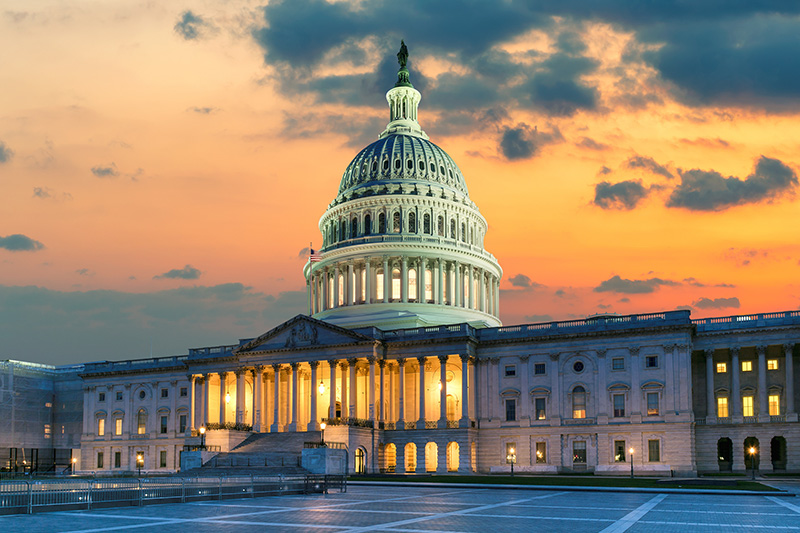
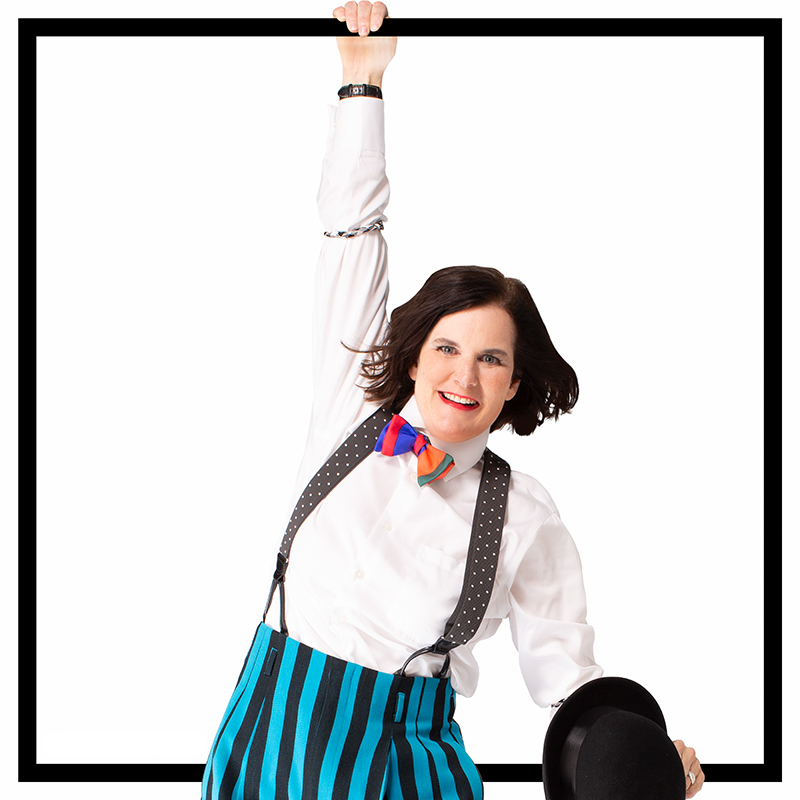
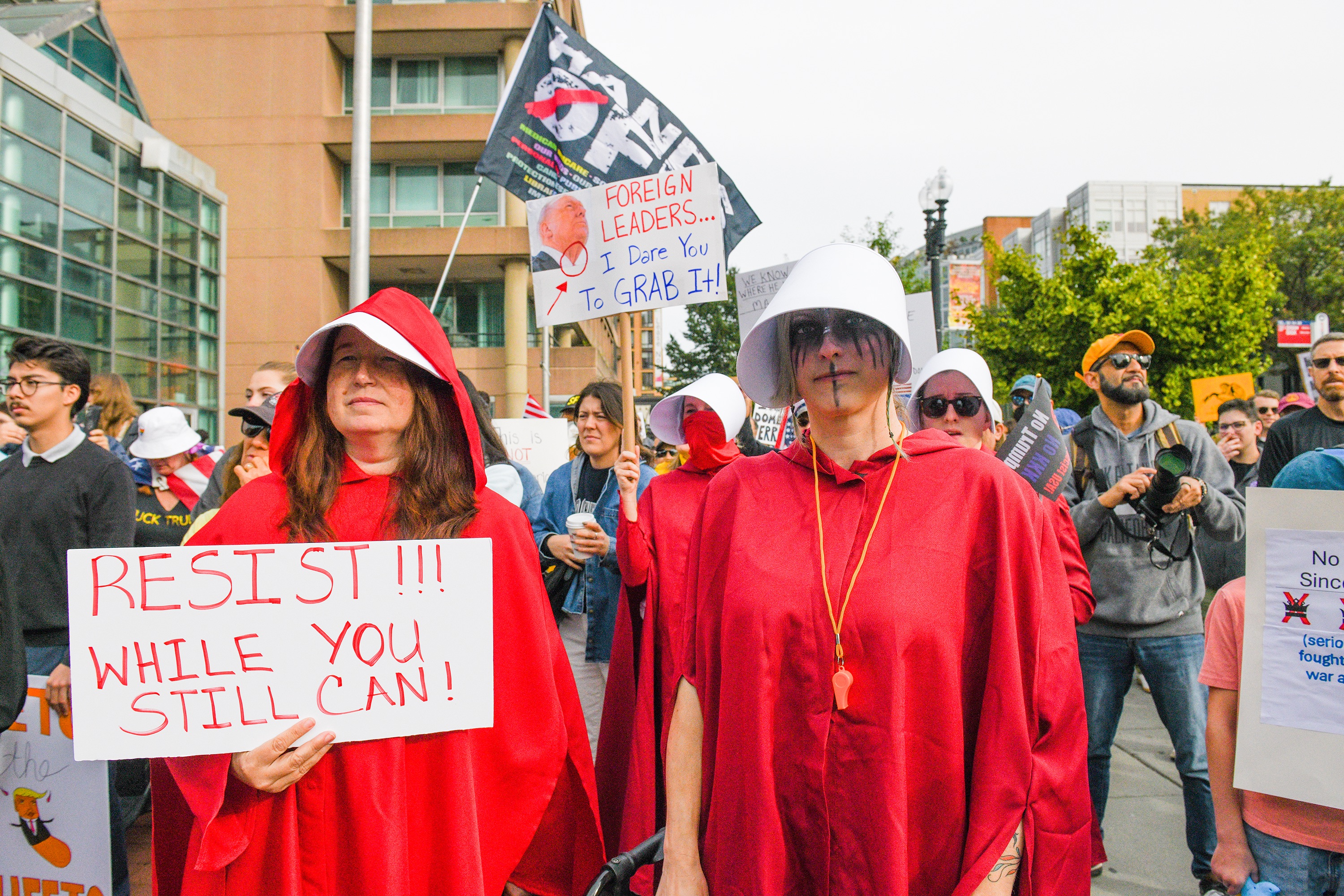
















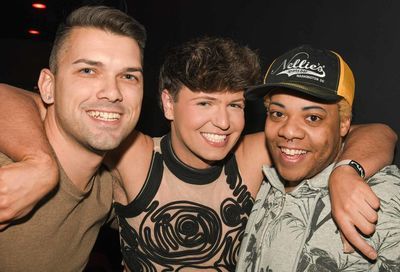
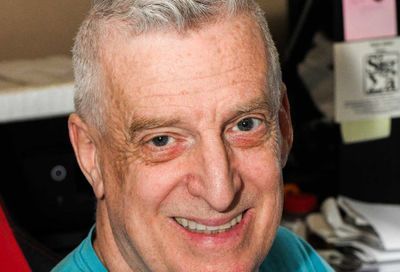
You must be logged in to post a comment.